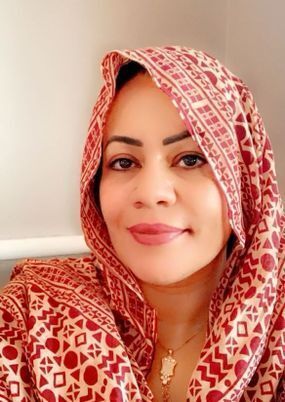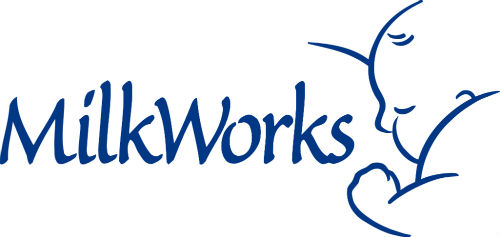Meet Samir Ayoub, Culturally Diverse Community Breastfeeding Educator

Samia joined the CBE group in 2019. She speaks French, Arabic and English.
Samia, where were you born?
I was born in the city of N’djamena in Chad (north central Africa). I grew up in a big house with my three sisters and three brothers, alongside cousins, and other children, who came from poor families that my parents helped raised. We considered them family. My dad worked with the government at the public treasury as a state inspector for about 45 years. My mother worked for a few years at the Libyan embassy in N’djamena until the civil war started in the 1980’s. She never returned to her position at the embassy after that.
What were your early memories of seeing the women in your family breastfeed?
My early memories were of my mom nursing my youngest sister, as well as seeing aunts, neighbors, and family friends nursing their newborns. Basically, every mother with a new baby is expected to nurse. I remember my mom telling us that she nursed all of us to the age of 24 months, except for my two older siblings. When they were born, there was no birth control and she got pregnant within four months postnatal. I also remember my mom telling us that when she was born, her mother did not have enough milk, and she was nursed by a wet nurse till the age of 24 months. The daughter of the woman who nursed my mother is considered our aunt now and she continues to live in our house back home. In Islam, all children who have been regularly breastfed (three to five or more times) by the same woman are considered “milk-siblings” and are prohibited from marrying each other.
What was it like going to school in Chad as a young girl?
I didn’t have any conflict going to school back in the days except that the schools were very crowded. I’ve seen some children not going to school, because their parents cannot afford the pay for their primary education, and the government would not help support those families. I don’t know how things are now for sure, but I have heard that it has changed a little and poor families are able to send at least their children to primary schools.
When did you move to Lincoln?
I came to the United States for the first time in January of 1994. I stayed a little over a year in Atlanta, Georgia, and I then moved to Lincoln in April 1995. We moved to Lincoln, because of the cost of living and job affordability.
What was your experience breastfeeding your own children? Was it easy or hard? What helped you?
Breastfeeding my first born was the hardest, because I had sore nipples and I did not know of any community resources like MilkWorks back then. Even with all the pain I endured, I did not give up. My nipples healed on their own and I continued nursing my son. I continued nursing all my children up to the age of two after that.
What do you like most about helping other mothers to breastfeed?
I love seeing an infant being nursed. It melts my heart knowing that he is getting the very best nutrition in the world, the closeness, and the attention they get from their mother. That wonderful connection you get with your baby while feeding. It feels so peaceful and calm when nursing - knowing that you’re giving the very best to your child.
What do you think mothers find easy (or hard) about breastfeeding today?
I think mothers find breastfeeding easier when they receive education or support from their doctors, a home visitor, or their community health worker.
I think they find it hard because they do not have time to spend with their newborn and are supposed to return to work a few weeks after delivery. That alone discourages mothers from breastfeeding. Also, many hospitals encourage women to bottle feed right after baby is born, which should be discouraged.
How can our community better support new mothers?
Our community can better support new mother by educating them about the importance of breastfeeding, and not just offer them formula right on the spot when they ask for it. Educate them how important breastfeeding is for the newborn as well as the mother versus formula. Yes, in some instance formula may be needed if the mother cannot produce enough milk for her newborn, that is completely understood.
What else would you like to share about yourself?
I currently work with the Healthy Families America Home Visitation program at the Health Department. My role is an outreach worker, a CBE, and a community health worker. I work with women prenatally, to improve breastfeeding rates and help families reach their breastfeeding goals.
(Interview July 2022)
